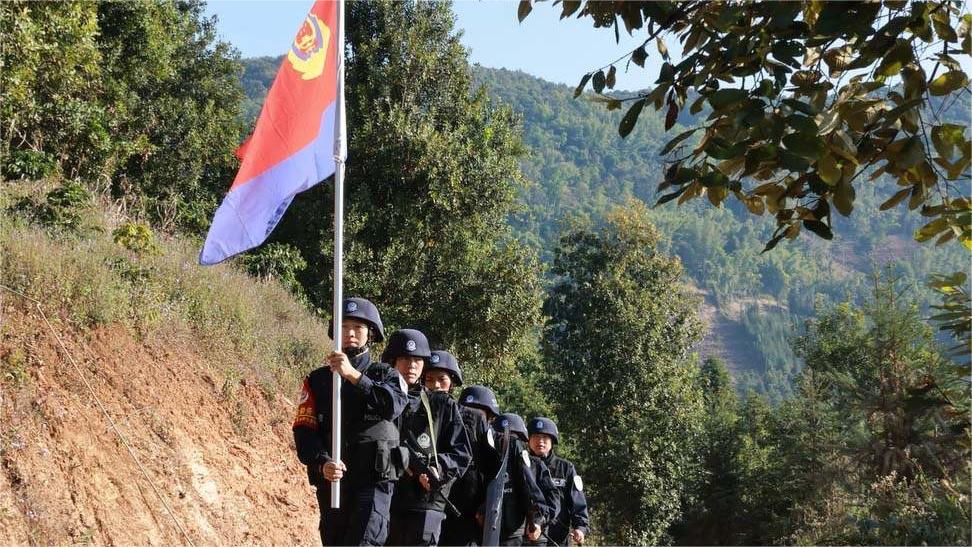Rejection of U.S.-proposed draft resolution on Gaza ceasefire highlights its "increasing global isolation"
CAIRO, March 24 (Xinhua) -- The rejection of a U.S.-proposed draft resolution on a Gaza ceasefire at the UN Security Council on Friday has highlighted the "increasing global isolation" of the United States, experts said.
Adel Abdel Ghafar, director of the Foreign Policy and Security Program of the Middle East Council on Global Affairs in Doha, said the resolution "does not go far enough and lacks specifics to stop Israel from further carrying out a carnage of Palestinians and thus it was vetoed. The veto highlights the growing global isolation of the United States and Israel."
The U.S.-led draft, presented to the Security Council a month after its veto of an Algeria-proposed draft resolution demanding an immediate ceasefire in the Gaza Strip, was not adopted on Friday, with 11 votes in favor, three against, and one abstention.
MOST IMPORTANT ISSUE REMAINS UNADDRESSED
Algeria's permanent representative to the United Nations, Amar Bendjama, told the Security Council on Friday that the U.S. draft resolution would have allowed "continuing bloodshed."
Bendjama added that since the United States circulated its draft over a month ago, Algeria had proposed reasonable edits to achieve a "more balanced and acceptable text." He acknowledged that some of their proposals had been included, but "core concerns remained unaddressed."
Bendjama has emphasized the urgency of an "immediate ceasefire" to prevent further loss of life, but regrettably, the draft fell short, and his country had therefore voted against it.
China's permanent representative to the United Nations, Zhang Jun, said the draft "evaded and dodged the essential issue, that is a ceasefire."
The ambassador said China rejects the accusations by the United States and Britain against China's voting position.
"Those are groundless accusations. If the U.S. were serious about a ceasefire, it wouldn't have vetoed time and again multiple council resolutions and wouldn't have taken such a detour and played a game of words while being ambiguous and evasive on critical issues," he said.
Before the vote, Russia's permanent representative to the United Nations, Vassily Nebenzia, criticized the diluted language of the U.S. resolution. He said the text did not call for a ceasefire and accused U.S. leadership of "deliberately misleading the international community."
According to an AP report on Saturday, a key issue (of the U.S. resolution) was the unusual language that said the Security Council "determines the imperative of an immediate and sustained cease-fire." The phrasing was not a straightforward "demand" or "call" to halt hostilities.
Sherine Tadros, UN representative of Amnesty International, described the U.S. resolution as "an attempt by the U.S. to absolve themselves of the abysmal record Biden has had so far on Gaza and submit a resolution that is not going to end the war."
"This moment requires unequivocal action by the security council, whose mandate is to maintain international peace and security, calling for an immediate ceasefire," said Tadros. "It shouldn't really be so hard for them to do that."
"The most significant issue (in the U.S. resolution) is the prioritization of the so-called hostages' interests over those of civilians, implying that detention has become more important to Washington than the killings and destruction inflicted by its ally, Israel," said Nabil Kahlouche, a strategic studies specialist from the Algiers-based National Institute of Strategic Global Studies.
RESOLUTION WITH "CLEAR FALLACIES"
"Algeria, along with other countries, rejected the American draft resolution because it contains clear fallacies," said Kahlouche.
Kahlouche pointed to the implicit bargain embedded within the resolution, where a ceasefire is tied to the release of Israeli detainees. He argued that this contradicts the logical sequence of events, saying, "releasing detainees should follow the cessation of aggression, not vice versa."
Saeed Okasha, an expert at Cairo-based Al-Ahram Center for Political and Strategic Studies, said he had expected the rejection of the U.S. draft resolution "because it does not include any obligation and its wording suggests a ceasefire in Gaza but without binding terms."
"The U.S. draft resolution failed to oppose Israel's planned invasion of the city of Rafah in Gaza. This is what U.S. President Joe Biden said before. He does not oppose Israel's invasion of Rafah but objects to doing it in the presence of Palestinian civilians. Instead, he urges Israel to present a plan for the transfer of civilians from Rafah before its invasion," he said.
"The United States calls for the delivery of aid to Gaza, but it will never give up its military support for Israel, as it is part of its battle to build the international system it wants. Therefore, the U.S. uses the moral aspect and talks about the human suffering in Gaza to mitigate the impact of its military intervention and backing of Israel," he said.
Kheir Diabat, a professor from the International Affairs Department of Qatar University, said the U.S.-submitted draft resolution reflects once again Western double standards in addressing security and global issues.
"The American proposal lacks a clear and serious message of peace. On the contrary, it gives Israel the green light to continue its killing of Palestinian civilians and lacks concrete guarantees to prevent further escalation," he said.
"Therefore, the veto was in line with the Arab position reflected by Algeria, which rejects temporary and ambiguous solutions that would compromise the interests of the Palestinian people," he said.
Israel launched a large-scale offensive against Hamas in Gaza to retaliate against a Hamas rampage in southern Israel on Oct. 7, 2023, during which about 1,200 people were killed and more than 250 were taken hostage.
After more than five months of conflict, figures from the Hamas-run Health Ministry indicate that more than 32,000 Palestinians have been killed by Israeli forces in the Gaza Strip, with over 74,000 others injured.
The international community is calling for an immediate ceasefire as the humanitarian situation deteriorates in the Gaza Strip. The UN has issued warnings of famine in large parts of the Palestinian coast enclave as local residents lack access to sufficient food following Israel's siege.
Photos
Related Stories
- U.S. Senate passes funding package after missing deadline to avert partial gov't shutdown
- Gaza faces cash liquidity crisis
- U.S. House passes second massive spending package ahead of shutdown deadline
- Blinken reiterates U.S. opposition to Israeli invasion of Rafah
- U.S.draft setting preconditions for ceasefire in Gaza "unacceptable," says Chinese envoy
- Egypt, UN warn against Israeli operation in Gaza's Rafah
Copyright © 2024 People's Daily Online. All Rights Reserved.









